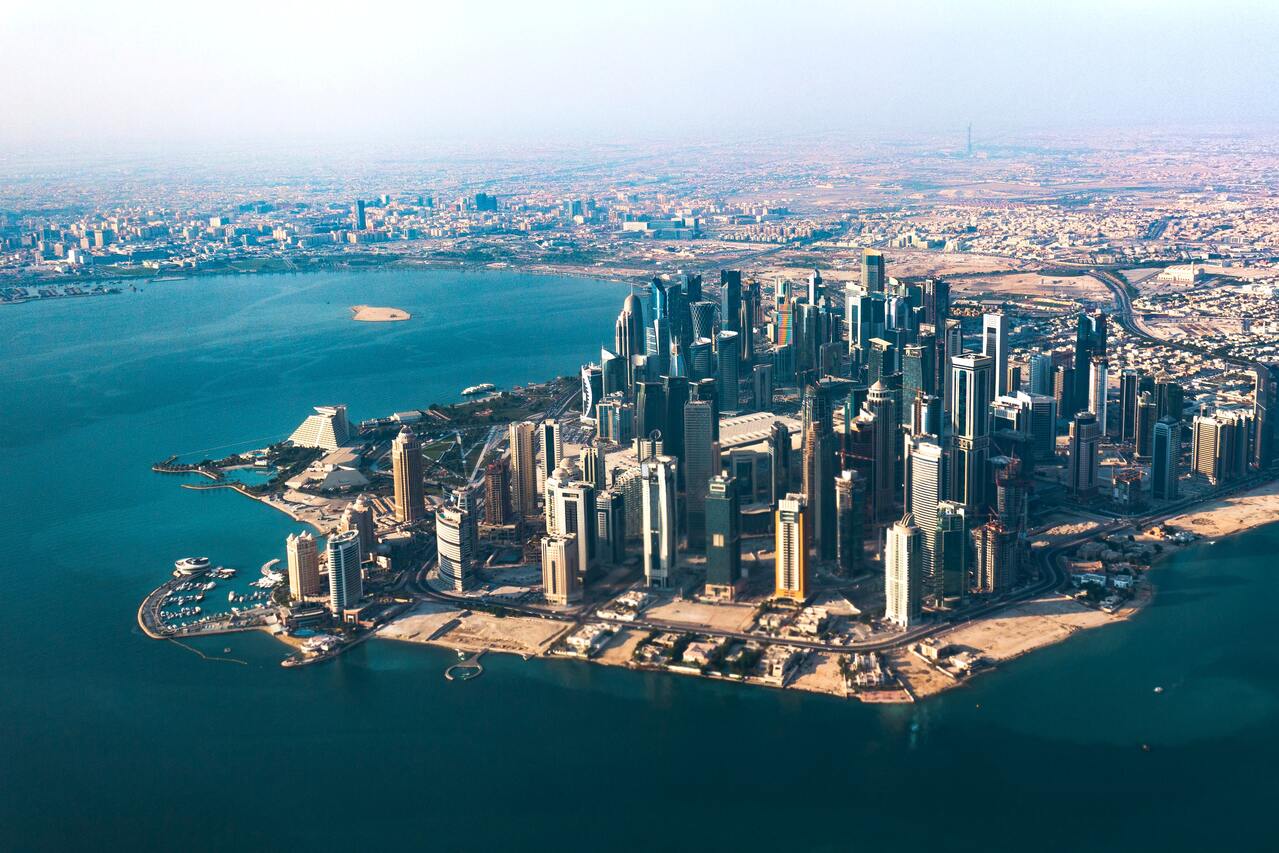Qatar plans to accelerate its shift towards renewable energy in the near future as its commitment to the Paris Agreement that pledges zero carbon emission by 2050. The country aims to increase its solar capacity to 2 - 4 gigawatts (GW) by 2030, eventually reducing the LNG emission contribution by 25 percent and flare intensity by over 75 percent.
The transition to a low carbon industrial landscape would support Qatar's resilience to unprecedented changes, grow the energy supply with a more environmentally friendly alternative, and allow the country to fight against climate change while hand in hand alleviate poverty through massive job creation. Qatar renewable energy strategy focuses on increasing energy efficiency, reducing flaring, venting, and uniform emission sources.
Qatar's water and energy consumption has significantly grown over the years due to the increasing population and the development of industrial sectors. Today, the country's average annual energy consumption per capita reaches around 16,000 kWh alongside 625 liters of water, considerably higher than most countries globally. Therefore, the mission to provide sustainable energy becomes Qatar's forefront response in catering to the growing domestic demand.

Until 2022, Qatar's national strategy emphasizes realizing a reduction of electricity and water consumption by 8 and 15 percent, respectively. Along with the plan, Qatar is installing an 800 megawatts (MW) additional capacity of renewable energy sources that ranges from gas-based to photovoltaics (PV) and wind power.
The significant installment and shift to renewable energy systems would require Qatar to undergo a comprehensive approach that includes multilayered distribution grids and the transformation of conventional power plants. To an extent, renewable energy needs to be handled with add-on care such as district cooling, battery storage systems, and other necessary infrastructure that would allow stable energy generation.
However, Qatar Energy's state-owned oil and gas firm has yet to show interest in raising funds with external parties to collaborate in developing renewable energy infrastructure jointly. The company handles over 77 million tonnes of Liquified Natural Gas (LNG) production annually, positioning itself as the leading player and contributor to Qatar's economic landscape. In contrast, other gulf countries have recently raced to raise funds and establish relationships with significant renewable energy players to become the region's leading solar and wind power generators.
The shift to renewable energy opens up a handful of opportunities to be explored by both domestic and foreign players in Qatar's business ecosystem. But the presence of technology to enable renewable energy operations has become one of the highlights. Digitalization would allow robust transformation in how energy is generated, inventoried, and consumed, eventually bringing the renewable energy sector to seamless operation and an efficient end-to-end monitoring system. Albeit Qatar's solar technologies energy sector is still nascent, players are starting to explore the benefits that the Internet of Things (IoT), advanced analytics, and artificial intelligence can offer to the operations and productions of Qatar renewable energy.
As Qatar moves forward to lead the global renewable energy market, other related sectors would also positively impact the industry. Qatar's renewable energy development holds solid promises to reach its zero-emission schedule in 2030.



